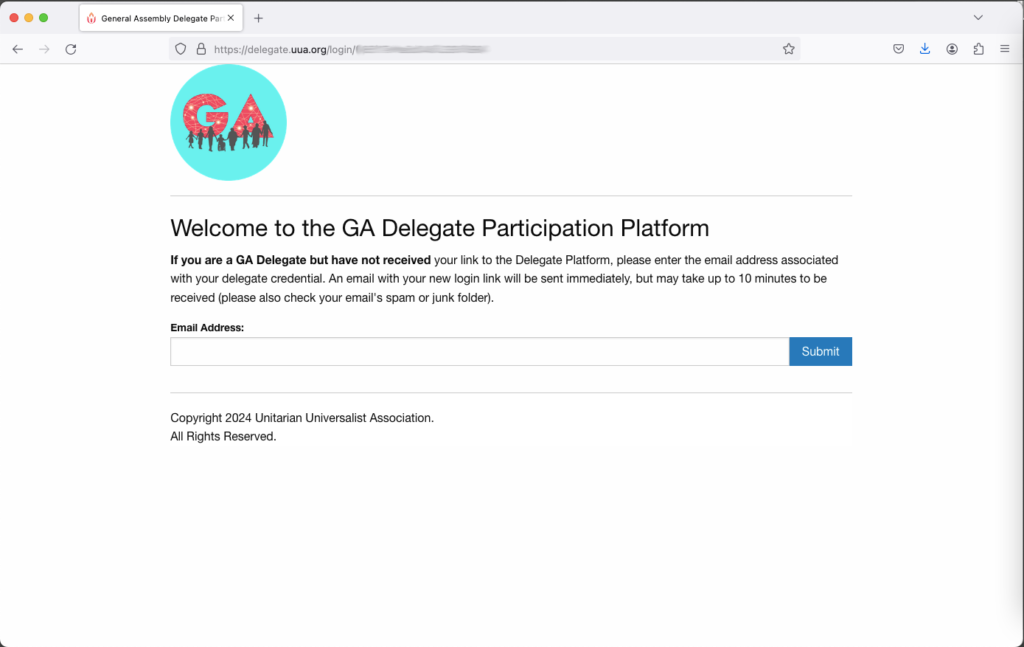I’m always interested to read a news story on a topic that I know something about. Do the news media get it right? Do they show their bias? What do they miss? What do they show me that I’ve missed by being too close to the subject?
No wonder, then, that I was interested to read Jemima Kelly’s Dec. 9 story from the Financial Times weekend edition, “The culture wars dividing America’s most liberal church: Long a beacon of progressive values, Unitarian Universalism has been convulsed by pulpit politics.”
It’s obvious where Kelly is starting from. Battles of the culture wars represent a major ongoing story in the U.S. today. While the battles between the liberals and the conservatives have been most prominent, increasingly we’ve been hearing about the battles within the two camps, e.g., the fault lines among conservatives, and the fault lines among liberals. Kelly says that recent conflicts within Unitarian Universalism serve “as a kind of microcosm of the way the culture wars can divide even the most politically liberal members of American society.”
Kelly begins her story with a report on the controversy about Todd Eklof’s “The Gadfly Papers” (I wrote about that controversy back in 2019). From what I can tell, Kelly’s reporting on the Gadfly controversy gets the facts right. However, I feel she comes across as being biased in favor of Eklof. She gives a lot of space to Eklof and his supporters, while only interviewing one outright opponent of Eklof.
On the other hand, I give Kelly credit for giving space to Vanessa Southern, who expresses a distinct lack of interest in the whole Gadfly controversy. :Southern said, “There are people who are just letting The Jerry Springer Show play out, are like, ‘Yes and?’” This forces me to admit that I’m a cultural illiterate who has never watched the Jerry Springer Show. According the BBC obituary of Jerry Springer: “Expletives, fists, and chairs were flung across the show’s set over 27 seasons between 1991 and 2018. In the process, it became equal parts ratings juggernaut and cultural reject.” I don’t think there were any fistfights or air-born chairs during the Gadfly controversy. Nonetheless, it’s not a bad analogy.
Kelly frames the Gadfly controversy as a wider controversy engulfing Unitarian Universalism — how to deal with racism. Kelly touches on the resignation of Peter Morales as president of the Unitarian Universalist Association, then dives into the current controversies concerning the revision of Article II of the Unitarian Universalist bylaws. I’ll quibble with some details of her reporting, e.g., she claims, “In the 59 years between the formation of the UU church [sic] in 1961 and 2020, nine ministers were permanently disfellowshipped….” — while I count ten. And calling Ralph Waldo Emerson an “abolitionist” is a stretch — “a reluctant opponent of slavery” comes a lot closer. Mostly, though, it seems to me she gets the facts straight.
As I say, I do feel that her story has a slight but definite bias in favor of people who disagree with the Unitarian Universalist party line. Those who disagree with the party line — Eklof, Peter Morales, Thandeka, Sandra Diaz — get the most coverage. Those who support the party line — Sarah Skochko, Carey McDonald — get less coverage. Kelly gives McDonald some fairly hardball questions, where Eklof doesn’t.
Does Kelly’s bias get in the way of the story? Well, the people who get almost no coverage are those of us who don’t, as a rule, pay much attention to denominational politics — people who are just trying to deal with the problems we face in our own communities. And why should we get much coverage? We’re boring. This is a news story in an international newspaper, and grassroots local efforts are of little interest to international news consumers.
However, Kelly may be missing something by catering to the needs of the international news consumer. In Seth Kaplan’s new book Fragile Neighborhoods: Repairing American Society, One ZIP Code at a Time, he argues that the place to rebuild democracy is in hyper-local efforts. Kaplan even says that in his own neighborhood people don’t spend much time talking politics because they’re too busy dealing with the tasks right in front of them. To her credit, Kelly does touch on this possibility when she quotes Vanessa Southern saying:
“I’m not going to be in a conversation that’s about tearing one another apart for the sake of drama. We are wrestling with how to be in the world and to whom we need to be most accountable. Change is messy. And, meanwhile, I have a city to minister to.”
For me, that last sentence was the best part of the article, because it helped me articulate my own feelings on these ongoing UU controversies. Why should I spend my time on the Gadfly controversy when the local food pantry needs more food, there are homeless people in town, domestic violence continues, the Neo-Nazis are recruiting in our area? To say nothing of other local problems: the teen mental health crisis, the opioid crisis, global climate change in coastal communities, the ongoing effects of the pandemic on children and teens, and on, and on. (I haven’t even gotten to the ordinary problems all human beings face: stresses on families with kids, deaths of people close to us, caring for people with chronic illness….) Come to think of it, this may help explain why young people are feeling disillusioned with organized religion — many of them probably perceive us as focused on abstract issues, rather than on local problems.
Oh well. I already know these kinds of local problems don’t make good news stories. So I give Kelly and the Financial Times credit for bringing them up at all, however tangentially. And thank you to Vanessa Southern for giving the reporter such a good quote.
Update 12/18: Par. 8 rewritten for clarity.

